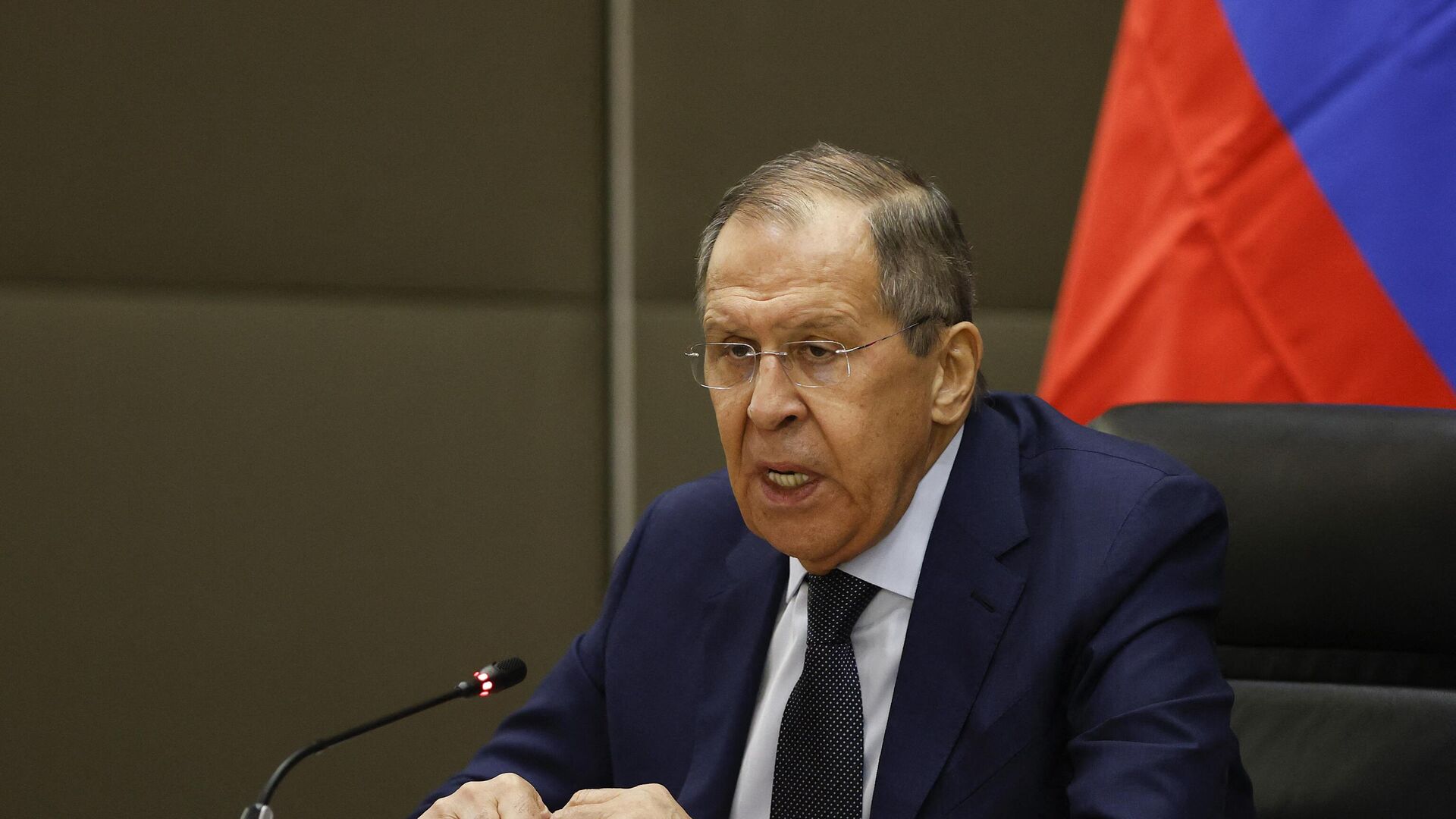https://sputnikglobe.com/20230124/lavrov-russia-respects-partners-refusing-to-follow-orders-from-former-colonial-empires-1106642120.html
Lavrov: Russia Respects Partners Refusing to Follow 'Orders From Former Colonial Empires'
Lavrov: Russia Respects Partners Refusing to Follow 'Orders From Former Colonial Empires'
Sputnik International
Russia appreciates the position of partner states guided by national interests and not by orders from former colonial empires or other countries, Russia's Russian Foreign Minister Sergey Lavrov said.
2023-01-24T12:47+0000
2023-01-24T12:47+0000
2023-01-24T15:13+0000
africa
southern africa
kingdom of eswatini
russia
sergey lavrov
russian foreign ministry
foreign minister
press conference
https://cdn1.img.sputnikglobe.com/img/07e7/01/18/1106639430_0:0:3072:1728_1920x0_80_0_0_16bef8bad44e0d092a8d45d50f71c972.jpg
Russia appreciates the position of partner states guided by national interests and not by orders from former colonial empires or other countries, Russian Foreign Minister Sergey Lavrov said during a press conference following a meeting with Eswatini Foreign Minister Thuli Dladla.In contrast to the West, Russia does not interfere in its partners' internal affairs current or long-term, Lavrov said, noting that with his Eswatini partners, he discussed "in a positive way what else can be done in the interests of developing good bilateral relations and friendly dialogue".Developing Bilateral RelationsSpeaking about the development of cooperation, Lavrov pointed out that he was happy to see a mutual interest for a founding agreement on friendship and cooperation between Eswatini and Russia.In turn, Eswatini's foreign minister said that Russia agreed to increase the annual number of scholarships for the students from 10 to 25. According to Lavrov, Russia is providing regular training for Eswatini civilians, law enforcers and military officers.At the beginning of the press conference, the ministers signed an agreement on visa-free travel for holders of diplomatic passports. Thulisile Dladla called the deal "a step in the right direction," adding that the kingdom is ready to sign more agreements on scientific cooperation, tourism and agriculture.Lavrov stated that he held detailed and productive discussions with several Eswatini ministers, based on the "principle of mutual respect and equality of states."The Russian minister added that a list of priority spheres will be created based on the result of the talks to help the preparation of the Russia–Africa Economic Forum, which will be held as part of the 2023 Russia–Africa Summit, to which, as Lavrov confirmed, the Eswatini monarch Mswati III is invited.The 2023 Russia–Africa Summit will be held in July in Russia's "northern capital" – Saint Petersburg. The meeting is a follow-up to the 2019 event in Sochi – the first summit of its kind.Enhancing Food SecurityElaborating on the areas of cooperation, Minister Dladla also noted that the two sides held an extensive discussion on the topic of agriculture and cooperation. She declared that according to the reached agreement, Eswatini will now be able to cultivate Russian grain, which is important for the development of the internal market and grain exports.Another specific issue is the supply of fertilizers to Eswatini, which faces a deficit of the products, negatively influencing agriculture, Minister Lavrov noted. He reiterated that only 20,000 of 280,000 tons of fertilizers blocked in EU ports, which Russia earlier agreed to provide to the poorest countries for free, had been exported to Africa, namely Malawi.Lavrov declared that the two countries agreed to send a special request to the UN on the issue of free-of-charge fertilizer supply, specifically to Eswatini.In 2022, the world faced a food crisis manifesting itself in growing prices and disruption of supply chains. African countries were among those who suffered the most, simultaneously targeted by the crisis and the climate change effects that increase food insecurity.Minister Lavrov earlier underlined that statements by western politicians who blame Russia's special military operation in Ukraine for the food crisis and accuse Russia of "weaponization food" are merely "slogans". He noted that the crisis started prior to the beginning of the military conflict.Interference and Non-InterferenceTalking about the West's allegations towards Russia and answering the journalists' questions, Lavrov touched the topic of recent statements by France's President Macron, who accused Russia of interference in Burkina Faso after its transitional government asked the French military to leave the country within a month.Lavrov underlined that Russia does not interfere in internal affairs, dismissing Macron's claims. He compared the issue concerning Burkina Faso to the situation in Mali, where France conducted the anti-terrorist Operation Barkhane – which, as Lavrov noted, was launched in order to fight the terrorist threat that developed after the neighboring Libya became a "black hole" – among other things – due to France's intervention in Libyan Civil War as part of NATO forces.Operation Barkhane was concluded in 2022, when France withdrew from Mali after growing discontent by the local government. France's defense minister later said that the French military proved unable to successfully participate in wide-scale operations.In connection to the situation on Mali, Macron accused Russia of pursuing a "predatory project" in the West African country.According to Russia's foreign minister, the EU's policies are characterized by a neo-colonialist attitude. To illustrate the statement, he recalled a meeting with top European diplomats.BRICS: An Organization of a New Type Speaking on matters of cooperation based on mutual respect, Lavrov elaborated on the global role of BRICS. He cited his South African colleague Naledi Pandor, calling BRICS an "organization of a new type".According to Lavrov, the BRICS countries are working to develop alternatives for the US dollar as an international currency, because "one should not rely on the mechanisms in the hands of those who can dump you anytime". Possible alternatives include the creation of an intra-BRICS currency.Lavrov noted that the approach to world affairs of the BRICS countries is sympathetic to an increasing number of countries on all continents – in Asia, Africa, and Latin America. In this regard, the head of the Russian Foreign Ministry recalled that in June last year, when an online summit was held in the BRICS+ and BRICS-Outreach format, 13 countries took part in it and all of them are more or less interested in rapprochement with the BRICS five. According to the minister, at the talks in Pretoria on Monday, South African President Cyril Ramaphosa said that South Africa, as the chair of BRICS in 2023, wants to invite a certain number of countries to the upcoming August summit in Durban.A Quarter of Century of CooperationDiplomatic relations between Russia and Eswatini were established on November 19, 1999. They do not involve the establishment of embassies; Russia's interests in the Kingdom are represented concurrently by the Russian ambassador to the Republic of Mozambique, and Eswatini's interests in Russia are represented by the ambassador to Switzerland.Speaking of bilateral ties, representatives of the Russian Foreign Ministry emphasized, first of all, Mbabane's traditional support for the main Russian initiatives on international platforms. Over the course of time, bilateral political relations developed in a positive manner.In 2007, the kingdom unilaterally established a visa-free entry regime for Russian citizens.The high point of political contacts was the participation of King Mswati III in the Russia-Africa summit on October 23-24, 2019, in Sochi. On the sidelines of the event, an intergovernmental agreement was signed on the mutual protection of the results of intellectual activity and the protection of intellectual property in the course of military-technical cooperation.In 2017, Russia and Eswatini signed an agreement on military cooperation.In April 2018, Russia's Deputy Foreign Minister Mikhail Bogdanov held talks with Eswatini Minister of Foreign Affairs and International Cooperation Mgagwa Gamedze, who visited Moscow, and in March 2015 he met in Windhoek (Namibia) with King Mswati III.In 2021, according to the Federal Customs Service of Russia, bilateral trade among the countries amounted to $2.38 million, which is about one and a half times more than a year earlier ($1.62 million). At the same time, Russia's imports from Eswatini amounted to $2.37 million, and agricultural goods dominated in its structure. Russian exports amounted to $11,000, primarily products of the chemical industry. Mining, thermal power engineering and ICT (in particular, the exchange of experience on the subject of digital government), as well as the introduction of Russian technologies in the fields of industry and agriculture of the Kingdom are considered as promising areas of cooperation.Russia likewise provides support to Eswatini in the field of personnel training (up to 15 people per year), including through the Ministry of Internal Affairs and the Ministry of Defense.
https://sputnikglobe.com/20221229/russia-unlike-us-invites-all-african-countries-to-summit-foreign-minister-lavrov-says-1105874803.html
https://sputnikglobe.com/20230123/sergey-lavrov-us-crossing-red-lines-by-threatening-other-countries-not-to-work-with-russia-1106616023.html
https://sputnikglobe.com/20230118/highlights-of-lavrovs-big-presser-from-wests-colonialist-mindset-to-ukraine-hybrid-war--beyond-1106466221.html
https://sputnikglobe.com/20230118/south-africa-says-brics-mulling-new-payment-system-to-ditch-dollar-control-1106444789.html
africa
southern africa
kingdom of eswatini
russia
Sputnik International
feedback@sputniknews.com
+74956456601
MIA „Rossiya Segodnya“
2023
News
en_EN
Sputnik International
feedback@sputniknews.com
+74956456601
MIA „Rossiya Segodnya“
Sputnik International
feedback@sputniknews.com
+74956456601
MIA „Rossiya Segodnya“
lavrov press, lavrov eswatini, lavrov swaziland, russia africa, lavrov tour, russia eswatini, russia brics
lavrov press, lavrov eswatini, lavrov swaziland, russia africa, lavrov tour, russia eswatini, russia brics
Lavrov: Russia Respects Partners Refusing to Follow 'Orders From Former Colonial Empires'
12:47 GMT 24.01.2023 (Updated: 15:13 GMT 24.01.2023) Russian Foreign Minister Sergey Lavrov arrived in Eswatini on Tuesday morning after visiting South Africa as part of his African tour. A day earlier, he met with South Africa's foreign minister and president in Pretoria.
Russia appreciates the position of partner states guided by national interests and not by orders from former colonial empires or other countries, Russian Foreign Minister Sergey
Lavrov said during a press conference following a meeting with Eswatini Foreign Minister Thuli Dladla.
"I'm not amazed that wherever I go, our western colleagues are trying to do some prevention and impress upon my hosts some behavior, which the Americans would like. And we very much appreciate and respect the position of all our partners, who in situations like this are guided not by the orders from former colonial powers and from those who would like to dominate now, but are guided by the legitimate national interests," he underlined.
In contrast to the West, Russia does not interfere in its partners' internal affairs current or long-term, Lavrov said, noting that with his Eswatini partners, he discussed "in a positive way what else can be done in the interests of developing good bilateral relations and friendly dialogue".
Developing Bilateral Relations
Speaking about the development of cooperation, Lavrov pointed out that he was happy to see a mutual interest for a founding agreement on friendship and cooperation between Eswatini and Russia.
"I want to note with satisfaction that during the talks there was a mutual interest in concluding a basic agreement on the foundations of friendship and cooperation. I think that it is quite realistic to complete this work next year, when we will celebrate the 25th anniversary of our diplomatic relations," he declared.
In turn, Eswatini's foreign minister said that Russia agreed to increase the annual number of scholarships for the students from 10 to 25. According to Lavrov, Russia is providing regular training for Eswatini civilians, law enforcers and military officers.
At the beginning of the press conference, the ministers signed an agreement on visa-free travel for holders of diplomatic passports. Thulisile Dladla called the deal "a step in the right direction," adding that the kingdom is ready to sign more agreements on scientific cooperation, tourism and agriculture.
Lavrov stated that he held detailed and productive discussions with several Eswatini ministers, based on the "principle of mutual respect and equality of states."
"Today we discussed in detail our cooperation in the political, trade, economic, military, military-technical, humanitarian spheres," he said. "We stated that the main effort now needs to be directed to the economic sphere, which, in terms of its indicators, of course, is seriously lagging behind other areas of our cooperation, primarily from the excellent level of political dialogue."
The Russian minister added that a list of priority spheres will be created based on the result of the talks to help the preparation of the Russia–Africa Economic Forum, which will be held as part of the 2023 Russia–Africa
Summit, to which, as Lavrov confirmed, the Eswatini monarch Mswati III is invited.
"We have outlined priority areas for business cooperation. Madam the Minister listed them – these are exploration, mining, energy, agriculture, including the supply of Russian grain, including the cultivation of our grain in Eswatini, the construction of irrigation systems in this country."
The 2023 Russia–Africa Summit will be held in July in Russia's "northern capital" – Saint Petersburg. The meeting is a follow-up to the 2019 event in Sochi – the first summit of its kind.
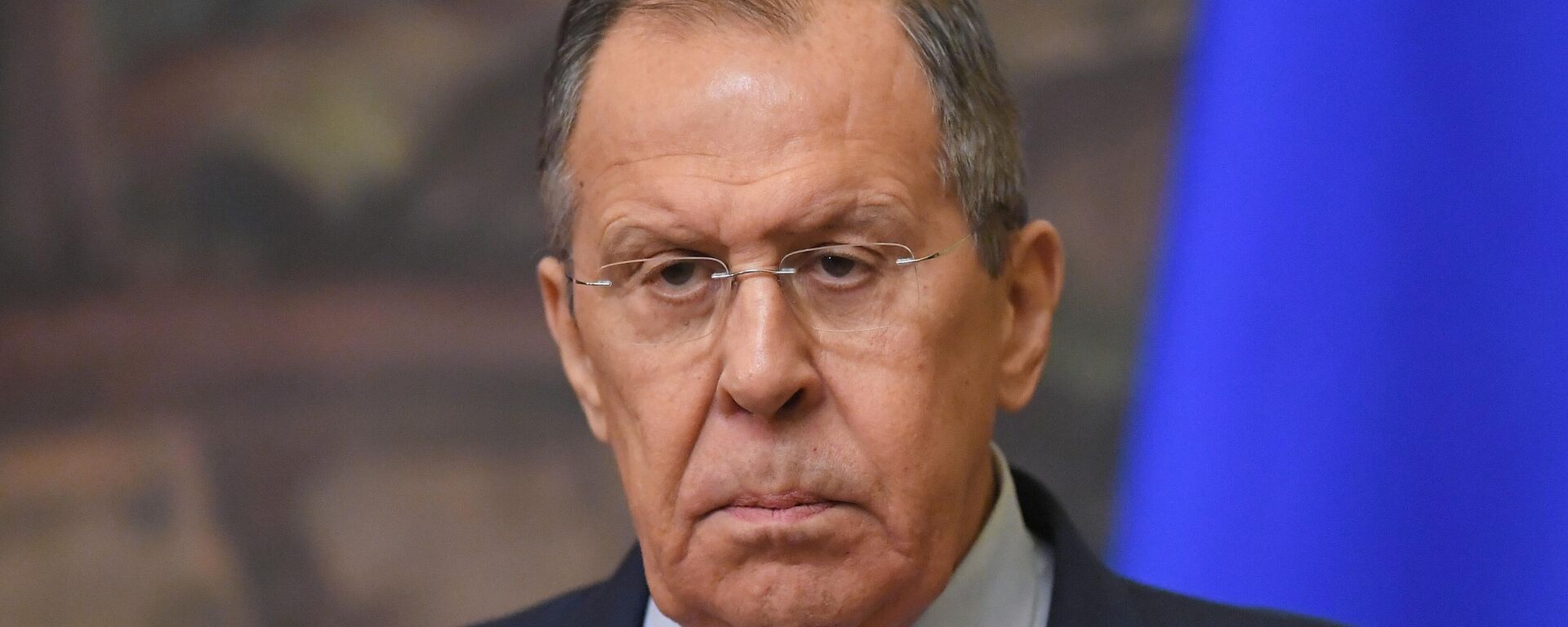
29 December 2022, 06:30 GMT
Elaborating on the areas of cooperation, Minister Dladla also noted that the two sides held an extensive discussion on the topic of agriculture and cooperation. She declared that according to the reached agreement, Eswatini will now be able to cultivate Russian grain, which is important for the development of the internal market and grain exports.
Another specific issue is the supply of
fertilizers to Eswatini, which faces a deficit of the products, negatively influencing agriculture, Minister Lavrov noted. He reiterated that only 20,000 of 280,000 tons of fertilizers blocked in EU ports, which Russia earlier agreed to provide to the poorest countries for free, had been exported to Africa, namely Malawi.
Lavrov declared that the two countries agreed to send a special request to the UN on the issue of free-of-charge fertilizer supply, specifically to Eswatini.
"Taking into account that the UN secretary general actively advocated the resolution of all issues related to ensuring the unhindered supply of Russian grain and fertilizers to the world markets, we agreed today that the government of Eswatini and our government will appeal to him with a specific request to promptly resolve the issue of using some Russian fertilizers, detained in EU ports, for the needs of Eswatini people on a free-of-charge basis, because these fertilizers are available," Lavrov underlined.
In 2022, the world faced a
food crisis manifesting itself in growing prices and disruption of supply chains. African countries were among those who suffered the most, simultaneously targeted by the crisis and the climate change effects that increase food insecurity.
Minister Lavrov earlier underlined that statements by western politicians who blame Russia's special military operation in Ukraine for the food crisis and accuse Russia of "weaponization food" are merely "slogans". He noted that the crisis started prior to the beginning of the military conflict.
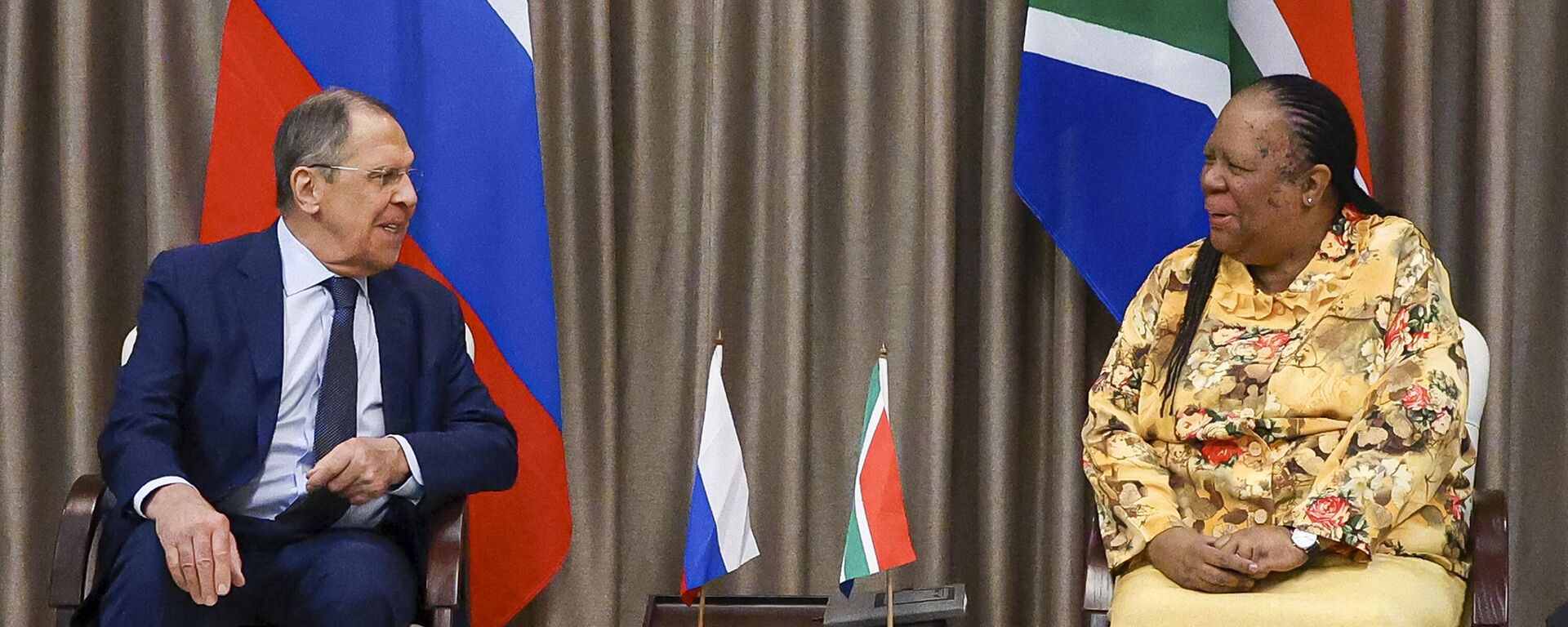
23 January 2023, 13:17 GMT
Interference and Non-Interference
Talking about the West's allegations towards Russia and answering the journalists' questions, Lavrov touched the topic of recent statements by France's President Macron, who accused Russia of interference in Burkina Faso after its transitional government
asked the French military to leave the country within a month.
Lavrov underlined that Russia does not interfere in internal affairs, dismissing Macron's claims. He compared the issue concerning Burkina Faso to the situation in Mali, where France conducted the anti-terrorist Operation
Barkhane – which, as Lavrov noted, was launched in order to fight the terrorist threat that developed after the neighboring Libya became a "black hole" – among other things – due to France's intervention in Libyan Civil War as part of NATO forces.
Operation Barkhane was concluded in 2022, when France withdrew from Mali after growing discontent by the local government. France's defense minister later
said that the French military proved unable to successfully participate in wide-scale operations.
In connection to the situation on Mali, Macron
accused Russia of pursuing a "predatory project" in the West African country.
According to Russia's foreign minister, the EU's policies are characterized by a neo-colonialist attitude. To illustrate the statement, he recalled a meeting with top European diplomats.
"This situation happened during the session of the General Assembly of the United Nations, and I held talks with the French Foreign Minister Le Drian, with the European High Representative Borrell – and both of them, though keeping appearances, were rather insistent in asking questions – what does Russia have to do with that part of Africa? […] I was told that Russia should learn that Africa is the area of special interest of Europe," Lavrov said.
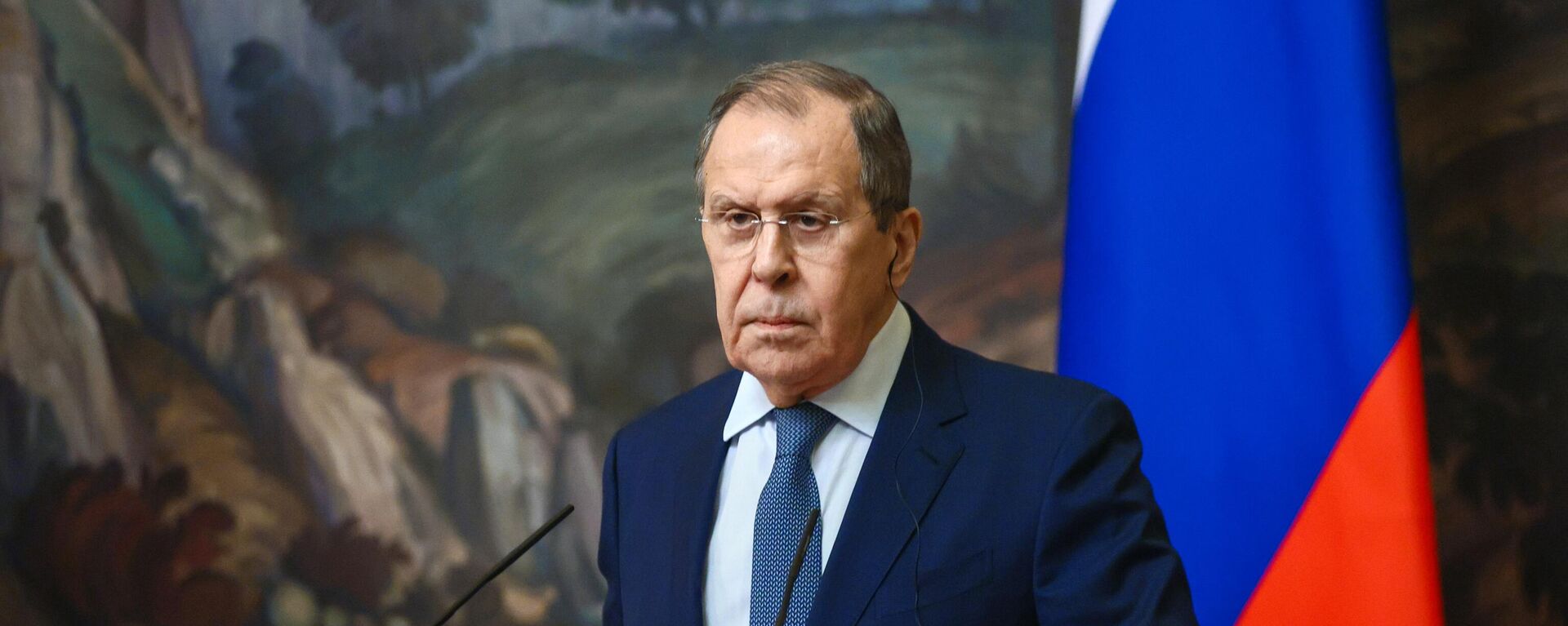
18 January 2023, 15:30 GMT
BRICS: An Organization of a New Type
Speaking on matters of cooperation based on mutual respect, Lavrov elaborated on the global role of BRICS. He cited his South African colleague Naledi Pandor, calling BRICS an "organization of a new type".
"BRICS operates on the basis of the principle of consensus, but this principle is different from the consensus that is used in NATO and the European Union. If any of the BRICS members has problems with this or that proposal, this proposal is not accepted, and efforts continue to find mutually acceptable mutually beneficial denouement," the minister said.
According to Lavrov, the BRICS countries are working to develop alternatives for the US dollar as an international currency, because "one should not rely on the mechanisms in the hands of those who can dump you anytime". Possible alternatives include the creation of an intra-BRICS currency.
Lavrov noted that the approach to world affairs of the
BRICS countries is sympathetic to an increasing number of countries on all continents – in Asia, Africa, and Latin America. In this regard, the head of the Russian Foreign Ministry recalled that in June last year, when an online summit was held in the BRICS+ and BRICS-Outreach format, 13 countries took part in it and all of them are more or less interested in rapprochement with the BRICS five.
According to the minister, at the talks in Pretoria on Monday, South African President Cyril Ramaphosa said that South Africa, as the chair of BRICS in 2023, wants to invite a certain number of countries to the upcoming August summit in Durban.
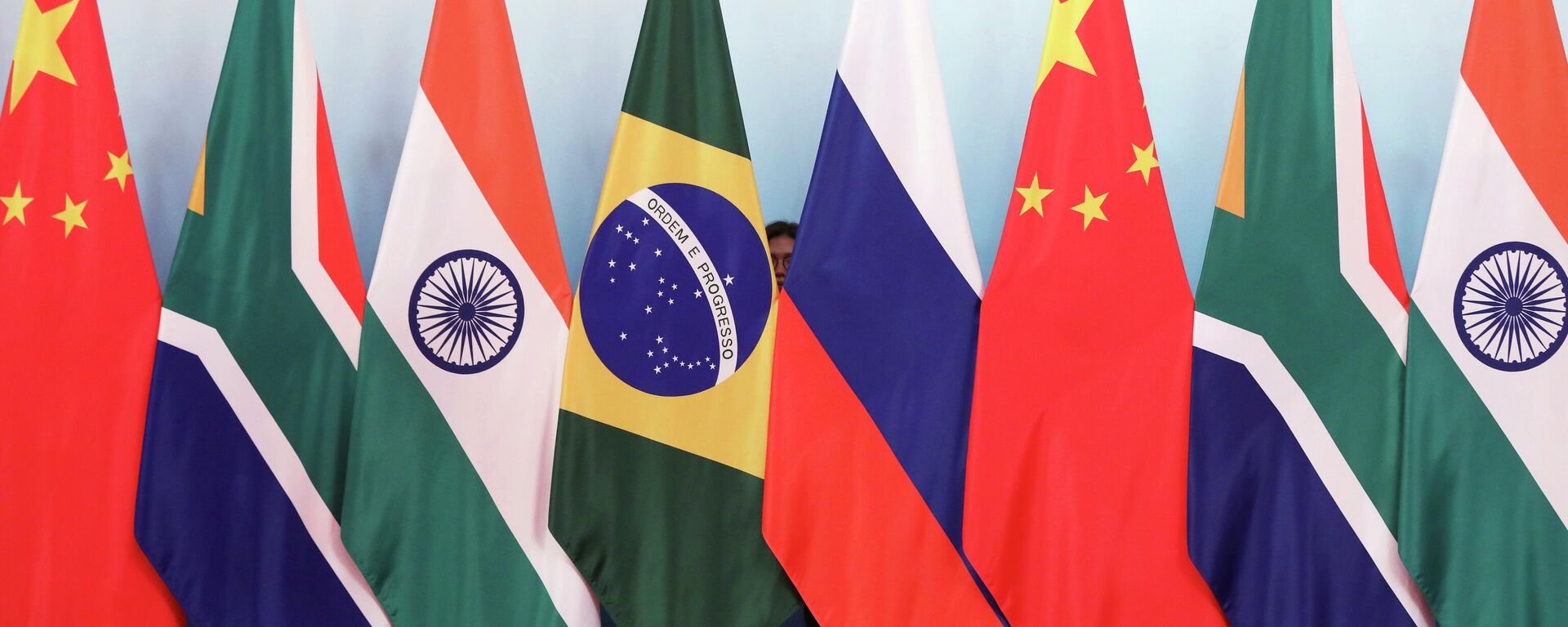
18 January 2023, 06:27 GMT
A Quarter of Century of Cooperation
Diplomatic relations between Russia and Eswatini were established on November 19, 1999. They do not involve the establishment of embassies; Russia's interests in the Kingdom are represented concurrently by the Russian ambassador to the Republic of Mozambique, and Eswatini's interests in Russia are represented by the ambassador to Switzerland.
Speaking of bilateral ties, representatives of the Russian Foreign Ministry emphasized, first of all, Mbabane's traditional support for the main Russian initiatives on international platforms. Over the course of time, bilateral political relations developed in a positive manner.
In 2007, the kingdom unilaterally established a visa-free entry regime for Russian citizens.
The high point of political contacts was the participation of King Mswati III in the Russia-Africa summit on October 23-24, 2019, in Sochi. On the sidelines of the event, an intergovernmental agreement was signed on the mutual protection of the results of intellectual activity and the protection of intellectual property in the course of military-technical cooperation.
In 2017, Russia and Eswatini signed an agreement on military cooperation.
In April 2018, Russia's Deputy Foreign Minister Mikhail Bogdanov held talks with Eswatini Minister of Foreign Affairs and International Cooperation Mgagwa Gamedze, who visited Moscow, and in March 2015 he met in Windhoek (Namibia) with King Mswati III.
In 2021, according to the Federal Customs Service of Russia, bilateral trade among the countries amounted to $2.38 million, which is about one and a half times more than a year earlier ($1.62 million). At the same time, Russia's imports from Eswatini amounted to $2.37 million, and agricultural goods dominated in its structure. Russian exports amounted to $11,000, primarily products of the chemical industry. Mining, thermal power engineering and ICT (in particular, the exchange of experience on the subject of digital government), as well as the introduction of Russian technologies in the fields of industry and agriculture of the Kingdom are considered as promising areas of cooperation.
Russia likewise provides support to Eswatini in the field of personnel training (up to 15 people per year), including through the Ministry of Internal Affairs and the Ministry of Defense.
